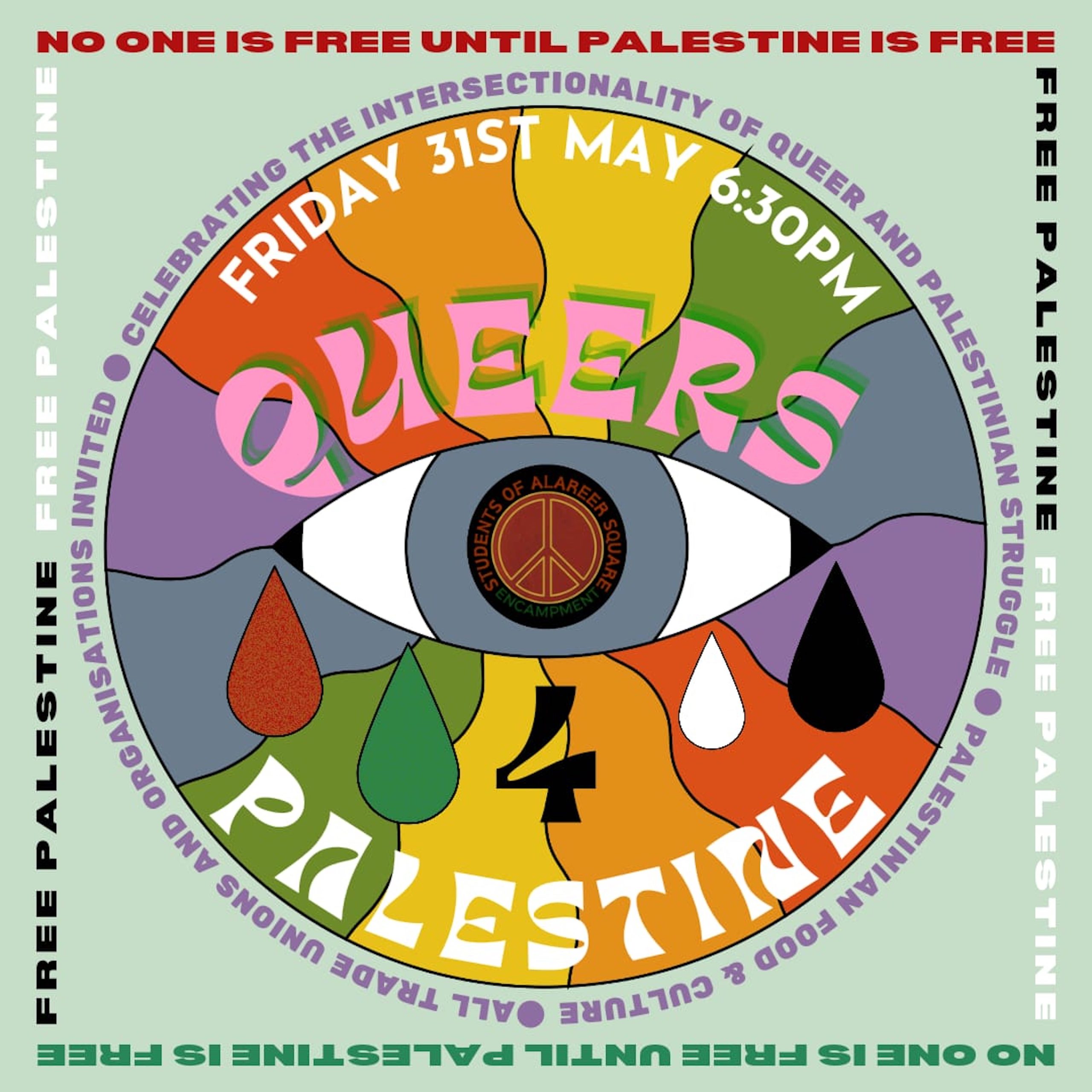Fighting for our collective humanity
This is Lara’s speech, a student on the encampment at the University of Liverpool who spoke at the Queers 4 Palestine vigil at the student encampment on 31 May.
When we first advertised this event, some people had questions about the relevance queerness to the Palestinian struggle, especially as we watch Palestinians being killed, no matter who they are.
What I want to say here is that this is exactly why this event is so important. Palestinians are not just numbers to be recited or names to be read out, they are people with real lives, with people they love and care for and think about in their dying moments.
The messages read by Palestinians at queering the map tell us just that. And that is what queerness and being part of the Palestinian struggle is about, it is inherently political. It is about loving in the face of oppression. To neglect this and dehumanise it is to play into the hands of the Israeli state.
During the miner’s strike of 1984/85, several queer people recognised that both groups had the same enemy. They were both being vilified by Thatcher. These people, known as Lesbians and Gays Support the Miners (see the adjacent box) raised the equivalent of around £90,000 for the miners. This is just one example of how these groups recognised that those in power had tried to divide them so that they would look sideways or down at the reasons for oppression rather than up.
This event is about solidarity between groups because the reality is that we all have the same oppressor, the coloniser and the capitalist.
The ways in which we are oppressed may be different, but the reasons are the same: wealth, greed and power. This movement is about people
coming together to say we don’t want your wars or your genocide, we want homes, land to live on, community solidarity and freedom.
When we engage with queerness and Palestinian resistance, we engage in a process of decolonial queering. It is not about pride marches and rainbows, but about freedom and life.
The Western colonial view of queerness separates us out into unbending identity categories and ignores the essence of queerness that is community. In the same way, the colonisers will take three Palestinians and tell us that one is from Gaza, one is from the West Bank and the other is from Israel. They will claim that queerness under occupation is the same queerness as their pink washing and colonial aggression. It is our task to reject this. To fight for Palestine, to fight for decolonial queerness, to fight against oppression is to fight for shared and collective humanity.


